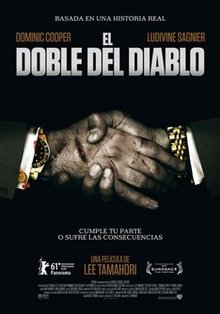 De El Doble Diablo De El Doble Diablo Año 1987 en Bagdad, cuando el teniente del ejército iraquí Latif Yahia (Dominic Cooper), es convocado desde la primera línea del frente al palacio de Saddam Hussein y se ve inmerso en las altas esferas de la familia real al tener que convertirse, gracias a su gran parecido físico, en el doble del hijo de Saddam, el famoso príncipe Uday Hussein (Dominic Cooper), un imprudente joven con un hambre feroz por el sexo y la brutalidad. Con su vida y su familia en juego, Latif decide renunciar a su antiguo yo para siempre a medida que aprende a caminar, hablar y actuar como Uday. Con un movimiento en falso que le puede costar su vida, Latif forja un vínculo íntimo con Sarrab (Ludivine Sagnier), la seductora amante de Uday, que es perseguida por sus propios agentes secretos. Pero mientras se teje una guerra con Kuwait, y Uday se cierne con un régimen mafioso que amenaza con destruirlos a todos, Latif se da cuenta que escapar de la guarida del diablo tendrá un alto precio.
0 Comments
 Since I wrote my first book in 1992, originally in Arabic and then translated to German. I have been trying to remove and stop certain publishers, especially American publishers namely Arcade publishing ( a bankrupt part of Time Warner) and now Skyhorse Publishing who bought the bankrupt Arcade publishing, from selling books that they attribute to me but that I have never given consent or authorisation to be published.  Due to a high demand for autographed copies of my books,and taking into account the amount that some of my previously autographed books are being offered for on Amazon and other sites (some being offered at 2,000 euros), my publisher has asked me to do something special for the holiday season. From now until December 18th, I will be signing copies of all my books at no extra cost, once it is purchased directly from my website (otherwise I won't get it to sign it). All books will be autographed to the buyer, if you wish the book to be autographed to someone else as a gift for example please email the publisher through their "contact us" form with the details of who you would like it made out to and the address it's to be sent to if different from the buyers. Happy holidays and enjoy the festive season. Best regards to all, Latif Yahia 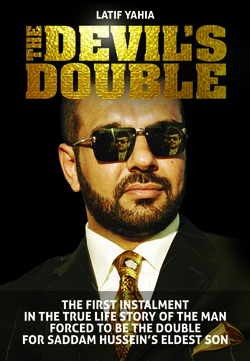 THE DEVIL'S DOUBLE €19.99 THE DEVIL'S DOUBLE €19.99 THE DEVIL’S DOUBLE: is the first of three autobiographical books chronicling Latif Yahia’s incredible life-story. It vividly describes how Latif was forced to become Uday Hussein’s ‘fidai’ (body-double) and gives a unique insight into the extreme extravagance and cruelty of the Saddam regime. Latif survived assassination attempts and witnessed Uday’s psychotic temper, rapes, orgy parties, torture atrocities, and sadistic murders. The book has recently been made into a highly-acclaimed movie. 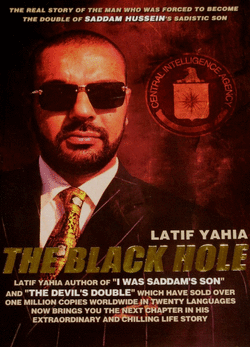 THE BLACK HOLE €14.99 THE BLACK HOLE €14.99 The Book the American CIA don't want you to read. The Black Hole continues on from Latif Yahias' escape from Iraq and Uday Saddam Hussein to Europe. Finding himself in Vienna, Austria, Latif and his companion try to build a new life, but with the CIA never far away and the Iraqi Intelligence service under orders to assassinate him, his life is far from quiet. Unlike The Devil's Double, The Black Hole was not held up in the American congress as a mirror to the tyranny that prevailed in Iraq or indeed the middle-east. Shining a bright light on the modus operandi of the CIA with regard to gathering intelligence, debriefing defectors and what actually happens when you say NO, it speaks loudly of the similarities between the methods of those at the top, whether they be Western or Middle-eastern. The Black Hole is banned from bookstores in Ireland and the USA. Since the author, Latif Yahia left Iraq in 1992 he has been unable to attain citizenship from any Nation, having had his file in Iraq deleted he is neither Iraqi nor anything else, this has effectively rendered him stateless. His reward for standing up to the Hussein regime and speaking openly about his personal experiences with the CIA. 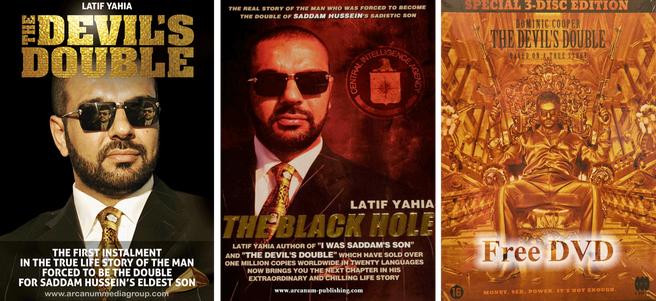 2 Books The Devil's Double & The Black Hole + Special 3-Disc Edition DVD of The Devil's Double movie.€33.95 2 Books The Devil's Double & The Black Hole + Special 3-Disc Edition DVD of The Devil's Double movie.€33.95 When you purchase The Devil's Double and The Black Hole books, we will send you the movie as a free gift (€19.99 value) "A tiger doesn't lose sleep over the opinion of SHEEP." In this video I answer the most popular questions that I have received through my website, emails and social media.
There are many perceptions of me, that I have made millions from my books and the movie, not true. That since I fled Iraq my life has been safe, not true, either.. That the government of the country where I reside have provided me with protection and security, that's not true either, I have my own private security. In my twenty one years in the West, I have not found democracy nor a country to call home and grant me citizenship, and so I am still stateless. The reason? I could not and would not sell my soul, One man forced me to become something I wasn't and ruled my life, when I broke free of him I vowed never to be forced to do anything against my will again, be it by a single person or a country.  Television Son of Saddam tells the story of Latif Yahia, who was the body double for Saddam Hussein’s eldest son, Uday. Director David Bartlett talks about the making of the film Lee Tamahori’s The Devil’s Double (2011) gave us an inside view of the horrors and excess in Saddam Hussein’s household. Based on the eponymous book by Latif Yahia, The Devil’s Double told his story as the Fedai or bullet catcher of Saddam’s eldest son, Uday, who seems to be an all-round crazy psycho person. The super hot Dominic Cooper played both Uday and Latif (Uday was so much more eye catching) and the movie celebrated Eighties excess in every frame. There was drugs, sex and rock n roll and torture aplenty in the overripe film. 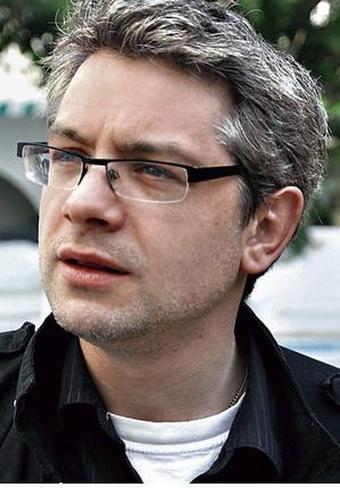 Inside story A scene from the film and below,Director David Bartlett Inside story A scene from the film and below,Director David Bartlett “That was classic Hollywood,” says director David Bartlett over the phone. Talking about Son of Saddam , an episode on Banged Up Abroad for National Geographic that he directed, Bartlett says: “This is very gritty. The styling is based on the Bourne films. There is a lot of handheld camera work. It is edgy and visceral.” Talking about the difference between the film and the documentary, Bartlett explains that the two ends at different points and also Son of Saddam has Latif facing the camera to tell his story. “Latif Yahia is a man who chooses carefully who to open up to. He is a very intelligent man, and has been through a lot of trouble and pain. He has written two books on his experiences, The Devil’s Double and The Black Hole and when Raw Television contacted him with a view to dramatising his life story, he was very keen to engage with us, on the grounds that we would faithfully represent his and his family’s plight. He is a relatively private man, but I gained his trust through many conversations, and we came to a position of mutual respect. From that position, Latif felt comfortable enough to open up very candidly and bravely in what turned out to be a very long interview in front of the camera.” While most episodes on Banged up Abroad feature people who are stuck in a foreign country, Son of Saddam features Latif who was Iraqi in a different kind of prison in Iraq. “The series tells the story of survival when caught in difficult situations and Latif’s story is true representation of human spirit that refused to get bogged down by the situation.” Like the movie, the same actor plays both the roles — the honest, good Latif and the evil psychotic Uday. “We needed either twin actors or the same actor playing both the roles. Sam Vincenti played Uday and Latif. It was a terrific performance as quite often he had to act against himself. There was clever editing involved as well.” Shot on the northern coast of Tunisia, in La Marsa principally, the feature is gripping for the window it offers into another world. Son of Saddam will air on 5/September/2012, at 10 p.m. on National Geographic Channel. 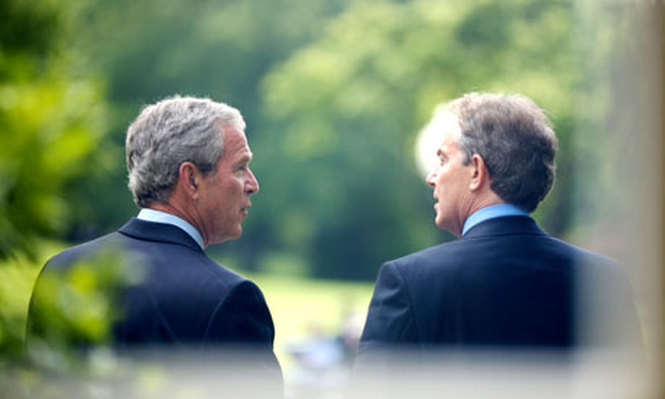 George Bush may have had a tougher sell on the Iraq war were it not for Tony Blair. George Bush may have had a tougher sell on the Iraq war were it not for Tony Blair. UK support for military action in Syria is not in America's best interest Lessons of Iraq show that British support should not be seen as a green light to American leaders to send in the troops. The last time a British prime minister endorsed an American president's plans for military intervention, it resulted in the US invasion of Iraq – one of the worst foreign policy blunders in recent American history. That is why last week's endorsement by David Cameron of a warning by Barack Obama that even the threat of chemical weapons by Syria could trigger a military intervention should be viewed with alarm on both sides of the Atlantic. There is something in the psyche of Americans that gives British views on foreign policy more credit than they deserve. If the Brits say it is so, it must be so is the common reaction of many Americans to pronouncements by British leaders. Americans are inclined to believe their friends across the Atlantic, given their centuries of involvement with countries around the world, have acquired skills to deal with foreign policy issues that Americans – with barely a century of global domination – simply do not possess. This is simply not true. While there may be some truth to this belief in British prowess in dealing with other countries, there is an overriding reason to not give British support too much credence: The UK's support is rarely based on facts on the ground and objective analysis. It is driven instead by a self-serving exaggerated view of the "special relationship" with the United States. I have always believed that former President Bush would have had a very difficult time selling his unilateral invasion of Iraq to Americans had Prime Minister Blair refused to support American military plans. Why then would Britain, America's closest ally, the co-inventor of modern Iraq, with intimate knowledge of, and deep historical ties to, the Middle East, and with its powerful understanding of Arabs and Islam, not have influenced its American ally's actions more wisely? Dean Acheson, one of America's most gifted Secretaries of State, would have had a ready explanation for why it was not in Britain's best interest to oppose the United States' plans to invade Iraq. Addressing a student conference at the US military academy, West Point, in 1962, he presciently said, "Great Britain has lost an empire and has not yet found a role. The attempt to play a separate power role, that is, a role apart from Europe, a role based primarily on a 'special relationship' with the United States … is about played out." The American invasion of Iraq destroyed the delicate balance of power relationships involving Iran, Iraq, Turkey, Sunni, Shia, and Kurd. A balance that Iraq's ruthless dictator had maintained for years. A precipitate collapse of the Assad regime in Syria would magnify this instability in the heart of the Middle East by, for instance, encouraging a push by Syrian Kurds for an independent Kurdish State – the worst nightmare of Turkey, one of America's closest allies in the Middle East. That is why Turkey, the country most affected by the mayhem in Syria (over 200,000 refugees have crossed into it for safety), is politically divided about militarily intervening in Syria. And, American military involvement in Syria, would further damage the relationship between the United States and Russia, Syria's benefactor. That would doom American and Nato plans to remove US troops and material from the war in Afghanistan through Central Asia and Russia; leaving Pakistan as the only route out of the Afghan quagmire. Is that in American national interest? If Britain wants to help re-engineer Syria, a country it helped to invent in the first place, it should be free to do so. But Americans would be wise to make it clear to their elected officials that they have no wish to intervene on one side of a civil war. America has other priorities for its blood and treasure, and they do not include another war in the Middle East. In this closely fought US presidential election season when President Obama is being hammered by conservatives to act militarily in Syria, what the world did not need is a public declaration of UK support for US military intervention in Syria. The US has been down this road before, in Iraq. Does anyone really want to repeat that movie?  Tony Lyons from Skyhorse Publishing Tony Lyons from Skyhorse Publishing Listen to the American Publisher's defence of the theft of Latif Yahia's book by Skyhorse Publishing, New York, USA. If you have bought or Pre-ordered any of these books I urge you to cancel your purchase or return the book and ask for a refund. These books have been used as tools in the propaganda for the invasion of Iraq in 2003.  On Monday February 27th, 2012, WikiLeaks began publishing The Global Intelligence Files, over five million e-mails from the Texas headquartered "global intelligence" company Stratfor. The e-mails date between July 2004 and late December 2011. They reveal the inner workings of a company that fronts as an intelligence publisher, but provides confidential intelligence services to large corporations, such as Bhopal's Dow Chemical Co., Lockheed Martin, Northrop Grumman, Raytheon and government agencies, including the US Department of Homeland Security, the US Marines and the US Defence Intelligence Agency. The emails show Stratfor's web of informers, pay-off structure, payment laundering techniques and psychological methods. Re: Info - Wiki Founder Email-ID 1031974 Date 2010-12-01 21:17:05 From [email protected] To [email protected] List-Name [email protected] I would think that's the second to last place he would want to go. GCHQ/london police/MI5 could easily find him, and I don't see why Cameron and friends wouldn't be 100% agreeable to extradition. But you're right, this is also the last report I saw. This could actually mean the US has decided NOT to go after him. ---------------------------------------------------------------------- From: Bayless Parsley Sender: [email protected] Date: Wed, 01 Dec 2010 14:14:30 -0600 To: Analyst List ReplyTo: Analyst List Subject: Re: Info - Wiki Founder no, last he was heard from was in Britain.... and he sounded SUPER paranoid this was before shit hit the fan like it has now hit following the pub of the diplo cables WikiLeaks Founder on the Run, Trailed by Notoriety By JOHN F. BURNS and RAVI SOMAIYA 10/23/10 http://www.nytimes.com/2010/10/24/world/24assange.html?_r=1&pagewanted=print LONDON - Julian Assange moves like a hunted man. In a noisy Ethiopian restaurant in London's rundown Paddington district, he pitches his voice barely above a whisper to foil the Western intelligence agencies he fears. He demands that his dwindling number of loyalists use expensive encrypted cellphones and swaps his own the way other men change shirts. He checks into hotels under false names, dyes his hair, sleeps on sofas and floors, and uses cash instead of credit cards, often borrowed from friends. "By being determined to be on this path, and not to compromise, I've wound up in an extraordinary situation," Mr. Assange said over lunch last Sunday, when he arrived sporting a woolen beanie and a wispy stubble and trailing a youthful entourage that included a filmmaker assigned to document any unpleasant surprises. In his remarkable journey to notoriety, Mr. Assange, founder of the WikiLeaks whistle-blowers' Web site, sees the next few weeks as his most hazardous. Now he is making his most brazen disclosure yet: 391,832 secret documents on the Iraqi war. He held a news conference in London on Saturday, saying that the release "constituted the most comprehensive and detailed account of any war ever to have entered the public record." Twelve weeks ago, he posted on his organization's Web site some 77,000 classified Pentagon documents on the Afghan conflict. Much has changed since 2006, when Mr. Assange, a 39-year-old Australian, used years of computer hacking and what friends call a near genius I.Q. to establish WikiLeaks, redefining whistle-blowing by gathering secrets in bulk, storing them beyond the reach of governments and others determined to retrieve them, then releasing them instantly, and globally. Now it is not just governments that denounce him: some of his own comrades are abandoning him for what they see as erratic and imperious behavior, and a nearly delusional grandeur unmatched by an awareness that the digital secrets he reveals can have a price in flesh and blood. Several WikiLeaks colleagues say he alone decided to release the Afghan documents without removing the names of Afghan intelligence sources for NATO troops. "We were very, very upset with that, and with the way he spoke about it afterwards," said Birgitta Jonsdottir, a core WikiLeaks volunteer and a member of Iceland's Parliament. "If he could just focus on the important things he does, it would be better." He is also being investigated in connection with accusations of rape and molestation involving two Swedish women. Mr. Assange has denied the allegations, saying the relations were consensual. But prosecutors in Sweden have yet to formally approve charges or dismiss the case eight weeks after the complaints against Mr. Assange were filed, damaging his quest for a secure base for himself and WikiLeaks. Though he characterizes the claims as "a smear campaign," the scandal has compounded the pressures of his cloaked life. "When it comes to the point where you occasionally look forward to being in prison on the basis that you might be able to spend a day reading a book, the realization dawns that perhaps the situation has become a little more stressful than you would like," he said over the London lunch. Exposing Secrets Mr. Assange has come a long way from an unsettled childhood in Australia as a self-acknowledged social misfit who narrowly avoided prison after being convicted on 25 charges of computer hacking in 1995. History is punctuated by spies, defectors and others who revealed the most inflammatory secrets of their age. Mr. Assange has become that figure for the Internet era, with as yet unreckoned consequences for himself and for the keepers of the world's secrets. "I've been waiting 40 years for someone to disclose information on a scale that might really make a difference," said Daniel Ellsberg, who exposed a 1,000-page secret study of the Vietnam War in 1971 that became known as the Pentagon Papers. Mr. Ellsberg said he saw kindred spirits in Mr. Assange and Pfc. Bradley Manning, the 22-year-old former Army intelligence operative under detention in Quantico, Va., suspected of leaking the Iraq and Afghan documents. "They were willing to go to prison for life, or be executed, to put out this information," Mr. Ellsberg said. Underlying Mr. Assange's anxieties is deep uncertainty about what the United States and its allies may do next. Pentagon and Justice department officials have said they are weighing his actions under the 1917 Espionage Act. They have demanded that Mr. Assange "return" all government documents in his possession, undertake not to publish any new ones and not "solicit" further American materials. Mr. Assange has responded by going on the run, but has found no refuge. Amid the Afghan documents controversy, he flew to Sweden, seeking a residence permit and protection under that country's broad press freedoms. His initial welcome was euphoric. "They called me the James Bond of journalism," he recalled wryly. "It got me a lot of fans, and some of them ended up causing me a bit of trouble." Within days, his liaisons with two Swedish women led to an arrest warrant on charges of rape and molestation. Karin Rosander, a spokesperson for the prosecutor, said last week that the police were continuing to investigate. In late September, he left Stockholm for Berlin. A bag he checked on the almost empty flight disappeared, with three encrypted laptops. It has not resurfaced; Mr. Assange suspects it was intercepted. From Germany, he traveled to London, wary at being detained on arrival. Under British law, his Australian passport entitles him to remain for six months. Iceland, another country with generous press freedoms and a strong WikiLeaks following, has also lost its appeal, with Mr. Assange concluding that its government, like Britain's, is too easily influenced by Washington. In his native Australia, ministers have signaled their willingness to cooperate with the United States if it opens a prosecution. Mr. Assange said a senior Australian official told him, "You play outside the rules, and you will be dealt with outside the rules." He faces attack from within, too. After the Sweden scandal, strains within WikiLeaks reached a breaking point, with some of Mr. Assange's closest collaborators publicly defecting. The New York Times spoke with dozens of people who have worked with and supported him in Iceland, Sweden, Germany, Britain and the United States. What emerged was a picture of the founder of WikiLeaks as its prime innovator and charismatic force but as someone whose growing celebrity has been matched by an increasingly dictatorial, eccentric and capricious style. Internal Turmoil Effectively, as Mr. Assange pursues his fugitive's life, his leadership is enforced over the Internet. Even remotely, his style is imperious. In an online exchange with one volunteer, a transcript of which was obtained by The Times, he warned that WikiLeaks would disintegrate without him. "We've been in a Unity or Death situation for a few months now," he said. When Herbert Snorrason, a 25-year-old political activist in Iceland, questioned Mr. Assange's judgment over a number of issues in an online exchange last month, Mr. Assange was uncompromising. "I don't like your tone," he said, according to a transcript. "If it continues, you're out." Mr. Assange cast himself as indispensable. "I am the heart and soul of this organization, its founder, philosopher, spokesperson, original coder, organizer, financier, and all the rest," he said. "If you have a problem with me," he told Mr. Snorrason, using an expletive, he should quit. In an interview about the exchange, Mr. Snorrason's conclusion was stark. "He is not in his right mind," he said. In London, Mr. Assange was dismissive of all those who have criticized him. "These are not consequential people," he said. "About a dozen" disillusioned volunteers have left recently, said Smari McCarthy, an Icelandic volunteer who has distanced himself in the recent turmoil. In late summer, Mr. Assange suspended Daniel Domscheit-Berg, a German who had been the WikiLeaks spokesman under the pseudonym Daniel Schmitt, accusing him of unspecified "bad behavior." Many more activists, Mr. McCarthy said, are likely to follow. Mr. Assange denied that any important volunteers had quit, apart from Mr. Domscheit-Berg. But further defections could paralyze an organization that Mr. Assange says has 40 core volunteers and about 800 mostly unpaid followers to maintain a diffuse web of computer servers and to secure the system against attack - to guard against the kind of infiltration that WikiLeaks itself has used to generate its revelations. Mr. Assange's detractors also accuse him of pursuing a vendetta against the United States. In London, Mr. Assange said America was an increasingly militarized society and a threat to democracy. Moreover, he said, "we have been attacked by the United States, so we are forced into a position where we must defend ourselves." Even among those challenging Mr. Assange's leadership style, there is recognition that the intricate computer and financial architecture WikiLeaks uses to shield it against its enemies has depended on its founder. "He's very unique and extremely capable," said Ms. Jonsdottir, the Icelandic lawmaker. A Rash of Scoops Before posting the documents on Afghanistan and Iraq, WikiLeaks enjoyed a string of coups. Supporters were thrilled when the organization posted documents on the Guantanamo Bay detention operation, the contents of Sarah Palin's personal Yahoo email account, reports of extrajudicial killings in Kenya and East Timor, the membership rolls of the neo-Nazi British National Party and a combat video showing American Apache helicopters in Baghdad in 2007 gunning down at least 12 people, including two Reuters journalists. But now, WikiLeaks has been met with new doubts. Amnesty International and Reporters Without Borders have joined the Pentagon in criticizing the organization for risking people's lives by publishing war logs identifying Afghans working for the Americans or acting as informers. A Taliban spokesman in Afghanistan using the pseudonym Zabiullah Mujahid said in a telephone interview that the Taliban had formed a nine-member "commission" after the Afghan documents were posted "to find about people who are spying." He said the Taliban had a "wanted" list of 1,800 Afghans and was comparing that with names WikiLeaks provided. "After the process is completed, our Taliban court will decide about such people," he said. Mr. Assange defended posting unredacted documents, saying he balanced his decision "with the knowledge of the tremendous good and prevention of harm that is caused" by putting the information into the public domain. "There are no easy choices on the table for this organization," he said. But if Mr. Assange is sustained by his sense of mission, faith is fading among his fellow conspirators. His mood was caught vividly in an exchange on Sept. 20 with another senior WikiLeaks figure. In an encrypted online chat, a transcript of which was passed to The Times, Mr. Assange was dismissive of his colleagues. He described them as "a confederacy of fools," and asked his interlocutor, "Am I dealing with a complete retard?" In London, Mr. Assange was angered when asked about the rifts. He responded testily to questions about WikiLeaks's opaque finances, Private Manning's fate and WikiLeaks's apparent lack of accountability to anybody but himself, calling the questions "cretinous," "facile" and reminiscent of "kindergarten." Mr. Assange has been equivocal about Private Manning, talking in late summer as though the soldier was unavoidable collateral damage, much like the Afghans named as informers in the secret Pentagon documents. But in London, he took a more sympathetic view, describing Private Manning as a "political prisoner" facing a jail term of up to 52 years, without confirming that he was the source of the disclosed war logs. "We have a duty to assist Mr. Manning and other people who are facing legal and other consequences," he said. Mr. Assange's own fate seems as imperiled as Private Manning's. Last Monday, the Swedish Migration Board said Mr. Assange's bid for a residence permit had been rejected. His British visa will expire early next year. When he left the London restaurant at twilight, heading into the shadows, he declined to say where he was going. The man who has put some of the world's most powerful institutions on his watch list was, once more, on the move. Eric Schmitt contributed reporting from Washington, and Dexter Filkins from Kabul, Afghanistan. On 12/1/10 1:29 PM, Sean Noonan wrote: Is he even still in sweden? -----Original Message----- From: Lena Bell Sender: [email protected] Date: Wed, 01 Dec 2010 13:10:26 To: Analyst List Reply-To: Analyst List Subject: Re: Info - Wiki Founder Not sure that's happening re Oz; federal police have opened up an investigation to see whether or not any Australian criminal laws were broken. - where did Nick get the insight about an agreed extradition - there is nothing about this on OS and of course it would mean Assange would have to come home first. Something he is very unlikely to do. GovGen hasn't ruled out canceling his passport incidentally. His mother has recently been interviewed by the ABC and she is scared that he will be "hunted down and jailed"... will make it difficult to pursue the scenario painted below. Australians are likely to back him. You wouldn't believe how much press/public sentiment david hicks created in Guantanamo Bay. It really forced the Howard govt to change tactics... esp when polling results overall were so poor.** Bayless Parsley wrote: The main thing I was trying to ask about earlier was in regards to the logistics of actually detaining the guy. I got the sense that Fred was saying US agents could physically do it in another country. Perhaps I just misunderstood what he was trying to say, because I find that really hard to believe (as rendition is not an option in this case, which is why I brought up the fact that some Republican congressmen are trying to call Assange a "terrorist" now). Basic fact is that any move to arrest the guy (assuming they get an indictment for him) would require that a friendly government do it and then extradite him. Nick Miller told me the Australians have already offered to do this, as Assange is an Australian citizen, and Australia is the Canada of the southern hemisphere when it comes to its relations with the US. Also, Karen had a very good point about the sex charges. Weren't those dropped months ago after the initial allegations? What do ya know, after the US explictly warned him time and again to stop publishing the cables, it pops back up all of a sudden... On 12/1/10 12:36 PM, Reva Bhalla wrote: can you charge them with anything if they paid for the information? On Dec 1, 2010, at 12:35 PM, Sean Noonan wrote: You mean by helping Manning get the information off the networks? Training, computer codes, flash drives, etc?? That's a good point. On 12/1/10 12:31 PM, George Friedman wrote: He might have facilitated or suborned the access. For example, provided the means for distirbuting it. Sent via BlackBerry by AT&T ------------------------------------------------------------------------ *From: *Sean Noonan *Date: *Wed, 1 Dec 2010 12:19:09 -0600 (CST) *To: *Analyst List *ReplyTo: *Analyst List *Subject: *Re: Info - Wiki Founder I think it's very difficult to indict him on anything though. MAYBE espionage, but even those laws are still too old. I think your FBI contact is right (sadly). the US can really only get the person who did the leak, not who published it--George also pointed this out over the weekend. What would the sealed indictment be for? (this is also why they will get him on some other charges in another country....) On 12/1/10 12:15 PM, Fred Burton wrote: Sealed indictment. Hand the warrant over to the USMS to execute. Happens everyday. The USMS works w/their counterparts and lock the dude up. Bayless Parsley wrote: How would it work if the US wanted to catch such a high profile target like this? Despite what one Republican senator may have said the other day (can't remember who, or if it was even a senator), he's not a "terrorist," and so rendition..... wouldn't really be an option. But legally, you'd have to have the host government's cooperation. Is there any way aside from that scenario that could lead to his arrest on charges of breaking US laws? On 12/1/10 12:12 PM, Fred Burton wrote: >From a very good contact @ the FBI -- How come you guys haven't picked this left-wing lunatic WikiLeaks founder up on some sort of trumped up charge? --------------------------------------------------------------------------- 1st Amendment overprotects journalists. Sean Noonan Tactical Analyst Office: +1 512-279-9479 Mobile: +1 512-758-5967 Strategic Forecasting, Inc. www.stratfor.com -- Sean Noonan Tactical Analyst Office: +1 512-279-9479 Mobile: +1 512-758-5967 Strategic Forecasting, Inc. www.stratfor.com Originally charged with murder, the charges were later reduced to involuntary manslaughter and aggravated assault, and on January 23, 2012 Wuterich pled guilty to a single count of negligent dereliction of duty as part of an agreement with military prosecutors. In exchange, all other charges were dropped.Wuterich was sentenced on January 24 and convicted to forfeiture of two-thirds of pay for three months and reduction in rank to private.
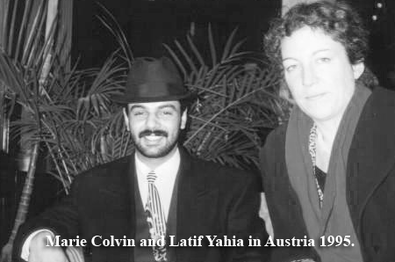 Marie Colvin 1995 Marie Colvin 1995 My Best Friend, Journalist Marie Colvin an American working for Britain's The Sunday Times, was killed in Homs-Syria today. Her intrepidness invited comparisons with the pioneering war reporter and fellow American Martha Gellhorn. Born in Long Island, she was educated at Yale University and started her career as a police reporter for a news agency in New York before moving to Paris and then London. She joined the Sunday Times in 1986 as a Middle East correspondent, covering the strife in Beirut, the intifada in Israel, the Iran-Iraq war, and Yemen, where she smuggled herself in from Djibouti by boat. By the time the first Gulf War came around in 1991 she was already battle-hardened. She was decorated for her reporting from Chechnya, where she was pinned down by fire from Russian aircraft and troops. Finding her last relatively sensible line of retreat cut off by paratroopers, she escaped over an icy mountain path into Georgia, but after four perilous days' journey found herself stranded. Marie had a knack for getting into places before her contemporaries and leaving long after they had given up, her goal, to report the whole story and in depth. She was a brave and courageous woman and will be sorely missed. My first meeting with Marie was in Vienna, Austria in 1995, when she did a piece on me for The Sunday times, we kept in contact over the years, anyone who met Marie was immediately taken by her strength of character and her ease of wit. The only battle scars that Marie showed were the physical ones and with her usual elan she made them into a positive rather than a negative. Marie's dedication to reporting made her the respected name is journalism that she is. I fear that with her loss the world of journalism has lost a lot more of it's integrity. Marie's death came as a double blow to me, firstly the loss of such a wonderful person and journalist and secondly for her death to occur in Syria a country so beautiful but troubled, a country that I have fond memories of because it was there that I reunited with my family in 2004. Marie you are immortal in our memories, R.I.P. My condolences to your family and everyone who's life you touched, like me they too will never forget you. |



Buy Latif Yahia Books from AmazonArchives
February 2015
|
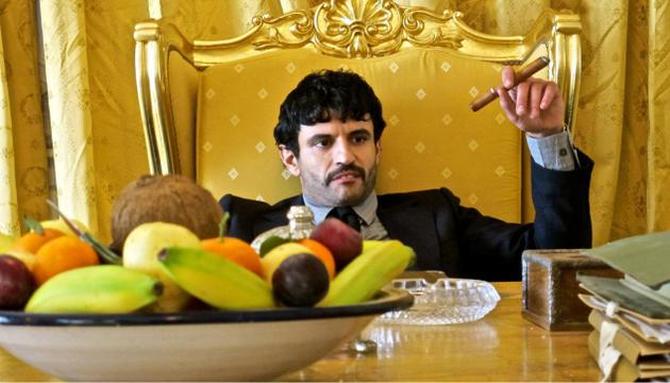

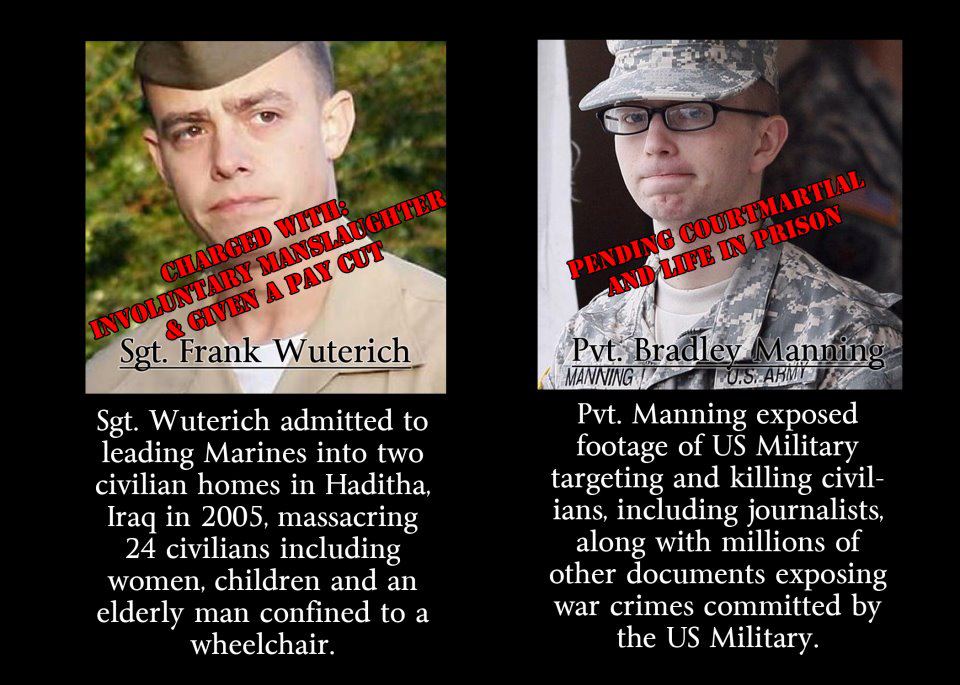
 RSS Feed
RSS Feed
